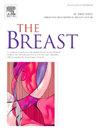早期乳腺癌幸存者决策后悔、生活质量和正念之间的关系
IF 7.9
2区 医学
Q1 OBSTETRICS & GYNECOLOGY
引用次数: 0
摘要
目的共同决策赋予乳腺癌患者参与治疗决策的自主权。然而,意想不到的副作用或不满意的结果会导致决定后悔。本研究考察了早期乳腺癌患者治疗后生存期决策后悔水平及其与生活质量的关系,以及正念意识和自我同情对这一关系的影响。方法于2021年3月至2022年3月进行横断面研究。研究人员从一家医疗中心和一家地区医院招募了过去36个月内完成治疗的早期乳腺癌患者。参与者完成了决策后悔量表、正念意识注意量表、自我同情量表和EORTC QLQ-C30和QLQ-BR45。结果138名参与者中,17.39%的人表示没有后悔,55.80%的人表示有轻微后悔,26.81%的人表示有中度到强烈后悔。决策后悔在患者偏好决策角色与实际决策角色的一致性上存在显著差异。多元回归分析表明,控制协变量后,决策后悔水平越低,EORTC QLQ-C30和QLQ-BR45功能评分越高。正念意识在决策后悔与生活质量之间具有显著的中介作用,而自我同情不具有中介作用。结论大多数乳腺癌幸存者有轻度或中度的决策后悔。决定后悔影响幸存者的一般和乳房特定功能。正念意识可以降低决策后悔对生活质量的影响。正念干预可以培养乳腺癌患者活在当下的体验,减少患者对过去治疗决策的消极反思,提高患者的生活质量。本文章由计算机程序翻译,如有差异,请以英文原文为准。
The relationship between decision regret, quality of life, and mindfulness in early-stage breast cancer survivors
Purpose
The shared decision-making empowers breast cancer patients’ autonomy in joining treatment decision. However, unexpected side effects or unsatisfactory outcomes can lead to decision regret. This study examines decision regret levels and its relationship with quality of life, and the impact of mindfulness awareness and self-compassion on this relationship among early-stage breast cancer patients in post-treatment survivorship.
Methods
A cross-sectional study was conducted from March 2021 to March 2022. The early-stage breast cancer patients who completed treatments within the past 36 months were recruited from a medical center and a regional hospital. Participants completed the Decision Regret Scale, Mindful Awareness Attention Scale, Self-Compassion Scale, and the EORTC QLQ-C30 and QLQ-BR45.
Results
Among the 138 participants, 17.39 % reported no regret, 55.80 % expressed mild regret, and 26.81 % reported moderate to strong regret. Decision regret differed significantly based on the congruence between patients’ preferred and actual decision-making roles. Multiple regression analysis showed that, after controlling for covariates, lower decision regret levels were associated with higher EORTC QLQ-C30 and QLQ-BR45 function scores. Mindfulness awareness significantly mediated the relationship between decision regret and QOL, while self-compassion was not identified as a mediator.
Conclusion
Most breast cancer survivors experienced mild or moderate decision regret. Decision regret influences survivors’ general and breast specific functions. Mindfulness awareness could reduce the impact of decision regret on QOL. The mindfulness-based interventions could cultivate breast cancer patients living at the present moment experiences to reduce their negative rumination about the past treatment decision and enhance their QOL.
求助全文
通过发布文献求助,成功后即可免费获取论文全文。
去求助
来源期刊

Breast
医学-妇产科学
CiteScore
8.70
自引率
2.60%
发文量
165
审稿时长
59 days
期刊介绍:
The Breast is an international, multidisciplinary journal for researchers and clinicians, which focuses on translational and clinical research for the advancement of breast cancer prevention, diagnosis and treatment of all stages.
 求助内容:
求助内容: 应助结果提醒方式:
应助结果提醒方式:


